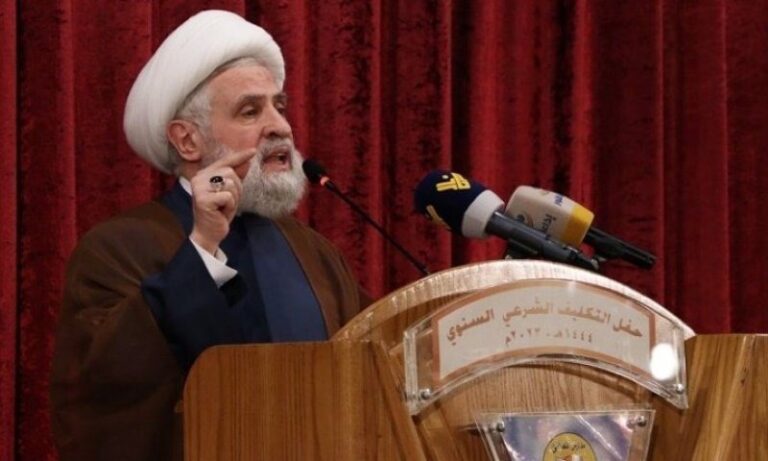By Rabbi Yair Hoffman for the Sefas Tamim Foundation
“Are you going to the wedding tonight?”
“Yes. Would you like a ride?”
“No, actually. I was wondering if you could do me a favor . . .”
“Sure, what is it?”
“Could you take my place card for me and put it in your pocketbook? I really don’t feel up to going.”
A quick survey revealed that this is actually a common conversation. While it may be common, it may not necessarily be permitted. The issue might be subsumed under what is called gneivas da’as, deceiving others. In cases that may not involve financial transactions, it may also be problematic. On the other hand, it could be that such a request is meant to avoid causing the host any pain. Indeed, it may even be construed as a mitzvah.
Let’s begin with the pertinent sections in the Talmud.
The Gemara in Chulin 94a cites a Braisah which discusses four examples given by Rabbi Meir of things that are forbidden on account of the issue of gneivas da’as:
1. It is forbidden to repeatedly invite someone to a meal when one knows that he will refuse.
2. It is forbidden to repeatedly offer someone gifts when one knows that he will refuse.
3. It is forbidden to open a new barrel of wine for a guest, when one had previously arranged for its remaining contents to be sold, unless one informs him of the real reason for opening it (the underlying issue is that the wine will not last as long once the barrel is open, and it will appear to be a big favor to the guest, much as opening a brand-new bottle of Blue Label would be nowadays).
4. It is forbidden to offer someone oil from an empty flask to anoint himself, when one knows full well that the person will refuse it. If, however, one is offering the oil to show his fondness for the person (to others, according to Rashi), it is permitted.
The Gemara questions the third example by pointing out that Ullah visited Rav Yehudah’s house, and the latter did this very thing!
Two Answers In The Talmud
The Gemara provides two resolutions to this question. The first answer is that Rav Yehudah informed Ullah that the barrel had to be opened anyway. The second answer is that Rav Yehudah loved Ullah so much that he would have opened up the barrel for him anyway—even if he would not have had to do so due to previously arranging for a sale. This can be qualified further by the fact that the the exception to Rabbi Meir’s fourth example does not include any case when there is further economic “owing” on the part of the person being honored.
Two Different Approaches To Geneivas Daas
The commentaries (see Lechem Mishnah Hilchos Dayos 2:6) point out that these two different answers seem to hold two very different views as to the parameters of the prohibition. The first opinion would seem to hold that gneivas da’as would be forbidden in all circumstances—even when the person would have done the favor anyway. The second opinion seems to hold that when there is a beneficial mitzvah purpose, and there is no economic damage that the gneivas da’as itself is causing, gneivas da’as would be permitted.
Second Gemara
The Gemara in Yevamos (106a) cites an illustration of where gneivas da’as would be permitted. Abaye told someone he would get money if he performed the mitzvah of chalitzah. Other examples can be found too (see, for example, CM 81:1 regarding the promotion of Torah learning, and the Levushei Srad on the TaZ 261 cited in Ohel Avrohom of Rav Avrohom Teitelbaum p. 130).
Why not subscribe to a Weekly Parsha sheet written by Rabbi Hoffman on the Topic of Emes? Each week there are four exciting columns in it. Just send an e-mail with the word “subscribe” in it to the author at [email protected].
The conclusion that must be made from this second Gemara is that gneivas da’as is permitted to avoid the negation of a positive mitzvah in the Torah.
Back To The Place Card
Getting back to our wedding place card, according to the second answer of the Gemara, gneivas da’as would be permitted if he would have done it for the person anyway. Here the guest would have come; it is just that something else came up or the person wasn’t feeling well. Thus, if the reason to request that the place card be taken away is to prevent the host from feeling bad, it might be permitted, particularly because there is no monetary damage involved here.
On the other hand, the first answer of the Gemara forbids geneivas da’as even under circumstances where the person would have come anyway.
Assuming that this understanding of the two answers is correct, how do we ultimately rule? The Poskim (see Tur CM 228, Rambam Dayos 2:6, and Rosh ibid) do not cite the second answer of the Gemara, which indicates that they do not hold of it.
How then do we understand the Gemara in Yevamos 106a where Abaye was involved in gneivas da’as? We must conclude that it is permitted when faced with the abnegation of a positive mitzvah in the Torah such as chalitzah, or bris milah, etc.
Gneivas da’as is different from lying. The Gemara in Yevamos (65b) allows one to lie when it is unavoidable in order to maintain shalom. We do not find this leniency, however, in regard to gneivas da’as.
The Views Found In Other Writings
This position is also backed up in the Mussar writings of Judaism. Rabbeinu Yonah (Shaarei Teshuvah 3:181) also states that sheker (lying) and gneivas da’as (misleading) are not synonymous. He cites the oft-quoted section of the Talmud that for purposes of peace, mipnei hashalom, it is permitted to lie, and adds that there is no such leniency for gneivas da’as. We also find that the Magain Avraham (OC 156:4) wonders whether the leniency to lie for the purposes of maintaining peace applies only to lying about the past and not about the future.
Rav Yechezkel Abramsky (Chazon Yechezkel Bava Kamma 7:3), in his commentary to the Tosefta, also rules that, even mipnei hashalom, it is forbidden to violate gneivas da’as. The likely reason for all this is that, given the opportunity, one is liable to use improper means to achieve personal benefit.
Nature Of Gneivas Da’as
Another issue is whether the prohibition is of biblical or rabbinic origin. The Sefer Yereim (in Mitzvah #124 of Lo Signov) rules that it is a biblical prohibition. The Ritvah on Chulin also rules that it is biblical—even when not dealing with monetary damage. The SMaK (#262) rules that gneivas da’as is a rabbinic violation. How does the SMaK understand the fact that the Gemara cites a pasuk to back up this prohibition?
An analytical device called asmachta involves the sages quoting a verse that alludes to an issue—even though it may not be a biblical prohibition, just a rabbinical one. Why would the Gemara do this? The meforshim explain that the verse is cited to show the readers that they should take it seriously.
One Last Possible Counterpoint
One could possibly argue that avoiding making someone feel bad fits into the fourth example of the Gemara cited earlier, that if it is to extend honor to the person and there is no financial damage to the person (or further “owing”), then it would be permitted. The problem with this is that extending honor is not necessarily synonymous with avoiding making them feel bad. Nonetheless, the Vilna Gaon does provide an alternative reading of the Tosefta in Bava Kamma (7:3) that would fit into this distinction.
Conclusions
All in all, however, it would seem that gneivas da’as is not something recommended by the poskim. Most poskim hold that it is a Torah prohibition and is worse than mere lying, which might be a strong moral recommendation rather than an out-and-out prohibition (though the Chofetz Chaim does hold that lying is an out-and-out prohibition).
Thus, it would probably be advisable not to ask someone to take the place card. One can understand, however, why someone would want to do so. Indeed, it seems that the second answer in the Gemara in Chullin agreed with that rationale. Ultimately, however, the poskim seemed to have rejected that approach.
Also, one can question whether the tactic of taking off the place card will actually work. One woman who recently married off a child remarked, “I would know. Even though I had over 700 guests, I can still tell who was there and who wasn’t.” There are also the matter of the photographs and the video.
This article is not addressing some other very important issues, such as the monetary waste involved in so much food being thrown out, as well as the tremendous time expenditures involved in waiting around for the first dance to begin. We will leave these issues for a possible future discussion.
Why not subscribe to a Weekly Parsha sheet written by Rabbi Hoffman on the Topic of Emes? Each week there are four exciting columns in it. Just send an e-mail with the word “subscribe” in it to the author at [email protected].












21 Responses
Is there not also the issue of cost (of the dinners or Bar tab) if they are semi-calculated by taking into consideration the number of place cards left?
Anyone who can afford to invite 700 guests at a seated dinner (which is the only reason to have place cards)at $150-$200 head wouldn’t really worry about someone not showing up. The real question is NOT the inyan of gneivas da’as as Rav Hoffman so elegantly opines on but mamash ganavah. If you know in advance that you are not going and the parents of the chasan/kalah have to guarantee the caterer in advance the number of guests, than you are causing them to pay $150/200 when you know you won’t be there. Its no different than taking the money out of their pocket and putting it in the caterer’s pocket.
Rabbi Hoffman, that is an interesting and very novel way of reading Rabbeinu Yonah and the Divrei Yechezkel.
In reference to what Mr. (obviously-not-such-a)GODOLHADOR says:”If you know in advance that you are not going and the parents of the chasan/kalah have to guarantee the caterer in advance the number of guests, than you are causing them to pay $150/200 when you know you won’t be there. Its no different than taking the money out of their pocket and putting it in the caterer’s pocket.”
Even if you were right that not showing up brought monetary loss to the family paying for the Wedding portions, YOU ARE STILL VERY WRONG BY SAYING THAT NOT “ITS NO DIFFERENT FROM TAKING MONEY OUT OF THEIR POCKET…”
Even if a person SENT a return card sayiyng that he WILL ATTEND, and then purposely doesn’t show up, there is a discussion in halacha whether this iscalled GROMOH Benizikin” or not.
Even if it is, it’s still not like actual stealing.
Surely and Definitely in our case, where the writer does not say that the attendance was confirmed before, You can’t claim that it’s like stealing.
Even if we assume that,had the return card not been sent to confirm, there would have been no seating card, which is not always the case, STILL since the non-attendance was BECAUSE HE DID NOT FEEL WELL it could change the halacha as far as Gromo (or even GARMEE) is concerned.
So your statement about this being NO DIFFERENT than taking money out of someones pocket… IS VERY WRONG!
What if the host then feels compelled to attend the faulty guest’s simcha out of a feeling of reverse obligation? Because of gneivas daas, it might cause him tremendous admas nefesh to attend, but he will anyway.
The place card (the actual physical paper card) is the property of and owned by the Baal Simcha until the named party takes it. The Baal Simcha only intends and allows his ownership of the card to go to the named guest. If someone else takes it, he is stealing (ganeiva) the card.
The Baal Simcha only intends and allows his ownership of the card to go, upon arrival at the wedding venue, to the named guest for the purpose of finding his seat.
mutar l’shanot m’pnai shalom.
Does this not fall under this category? the person wants to maintain shalom with the baal habyeit.
as for causing added expenses, does the caterer charge per card taken or was there an agreement prior regarding the number of plates to be served.
sound like a nice Dvray Torah, but l’maaseh, I don’t see the problem. Both sides of the wedding are happy: the host thinks the guest came and the ‘guest’ was able to do what he needed to do.
Isn’t that a win-win situation??
Isn’t lying also basically a form of G’neivas Da’as?
Btw, I’ve seen many times where guests attend the wedding, but fail to take their seating-card.
Sorry it’s not stealing because u asked him to take your card it is if you respond yes I’m coming knowing you aren’t. But once u commit to a number of people u are bring u are paying for them even if they don’t show up
I always say I will be at kappa Thee are always empty seats of no shoes
Why cost them extra money.
To Nos. 4 and 8
I’m not sure what is the practical difference if you knowingly cause the baalei simcha to lose money…whether you do it directly or indirectly. The place card with your name is there because you have RSV’D for the simcha. Any decent simcha hall or hotel caterer requires a guarantee of the number of guests somewhere between 48 hours and a week prior to the event. The baalei simcha get billed based on the guarantee. If you confirm and then deliberately choose not to go, call it ganaavah, theft by deception or whatever artful term you want to fabricate. It still means you’ve deliberately caused them to lose money
Never ever heard of such a thing happening. If you are seen you were there, if you weren’t seen, you weren’t there. It has nothing to do with a place card. This is nonsense!
How about the genivas das most of you are transgressing by saying you don’t have internet…you know one of you is guilty of that. Lol
I never heard of a caterer calculating the cost based in the number of missing place cards. They are a ‘gilu milsa b’alma’ – only there to tell the guests which table to sit at. They have no monetary value. In fact, a nice host will not bother to look through them after the simcha, and will just throw them out.
So this whole sheile is really blown way out of proportion, and probably never started in the first place. The card might even be granted ownership to the guest in advance, making it their property even before they show up.
I don’t understand the whole thing. Are there places where the seating cards affect how much the caterer charges? I have OFTEN seen simchos where MANY guests attended but didn’t bother to take their card. Usually these are close friends and relatives who don’t need the card, because they already know which table to sit at. But the caterer has no way to know how many of the leftover cards are for people who showed up or not. BESIDES- why would a caterer count the cards anyway? Isn’t the number of main courses served a much more accurate way to count it?
(continued from #4)
in response to #12 – (cont. from #2)
_________________________________________
GODOLHADOR #12- WROTE: “I’m not sure what is the practical difference if you knowingly cause the baalei simcha to lose money…whether you do it directly or indirectly.
Response: That is EXACTLY my point!! There is a very clear difference in halacha between …whether you do it directly or indirectly. Directly is Mazik Indirectly is GROMO or Garmee. And your assumption that they are equal is halachicaly incorrect.
Wow. This is incredible. 17 responses (18 with mine) to what is, essentially, a non-issue and a further proof that you can generate full-fledged pilpulim based on conjured-up scenarios. As Shlomo HaMelech puts it so clearly in Koheles: “גם זה הבל ורעיון רוח”.
Reminds me of the famous urban legend (or is it yeshivish legend) about the Brisker Rov agreeing to say Purim Torah and doing this by giving a 2-hour pilpul based on a Rambam that doesn’t exist. It’s not a question if “did it happen” but the idea that it COULD have happened.
Taking the place card is not necessarily to fool the host and give the impression that you attended.
One prime reason for taking the place card is to avoid announcing to the world that you missed the simcha (and then all the follow-up calls and inquiries “Oh why did you miss the wedding? I noticed your place card”).
Many intend to attend the simcha yet something comes up e.g. mikveh night. Why have every yenta speculate about why you were absent?! Privacy (and tznius) is a valid reason to ask someone to remove the place card, not to trick the host (who certainly knows whether their good friends attend or are absent), but to delete yourself from the list of expected attendees so that others have no information of your absence.
The reverse is sometimes also applicable (and that too is not geneivas daas):
Some people want the oilom to know that they have been invited to the chosheveh simcha, so they davka LEAVE their card and do not take it, even when they are at the simcha. That way each guest can see how “important” this person is, that s/he was invited. This is a form of “advertisement” to the world – not to fool anyone, but to announce to them, a status symbol.
To take the card – when one does not attend, or to leave the card – when one attends is not to fool but to accomplish a specific task unrelated to geneivas daas.
If someone is fooled by this legitimate action, let him be fooled!
Just as there is no issue of geneivas daas if I have a legitimate reason to walk in the street with an umbrella open – for shade, even though some fools will look out the window and I will cause them to think that it is raining, or if I buy 100 boxes of breakfast cereal because I need them and someone will think that it is on sale at an excellent price.
Let the fool – fool himself.
Ben Torah, you claim that since the Baal Simcha intends the card to go to the named guest, if someone else takes it, he is stealing (ganeiva) the card.
That is a shtus shain lo shiyur. If you attend the simcha together with your gabbai, can you not ask your gabbai get your card for you while you accept kvitlech from your followers? Do you think that the host wants only you to personally take your own place card?!
Certainly you can make a shliach to be zocheh the card for you! In fact, even without shluchus, your gabai or one of your talmidim can be zocheh the card for you (even in advance of your arrival) and advise you of your table!
There is no gneivah here!
Further Ben Torah claims that the bal simcha relinquishes ownership of the card as a mattana al t’nay to the named guest, only upon his arrival to the simcha and only for the purpose of finding his seat.
That is total narishkeit. Suppose after you glance at your place card, someone asks you if they can have your place card to write a chiddush they just thought of, is that prohibited as a gneiva because the matana al t’nay was only for you to use the place card to find your seat and not to write chidushei Torah on it?!
And this opens up the halacha of matana al tnei – if you give someone a dollar al t’nay that he buy a drink with it, can the mekabel use the dollar to buy a chocolate bar? If in the winter you give a poor man money to buy a coat, can he use the money (which is now his) to buy a safer? Answer: Yes, he can, because the money becomes 100% his
An exception can be in cases of shi’yair b’kinyono – the nosen “held back” from fully giving 100% ownership to the mekabel, retaining some control and ownership over the item, as in situations of when you buy a music CD or a safer, the artist or author never gave up his full ownership, and therefore can restrict your usage prohibiting you from copying the CD or sefer, aka halachic copyright. But that is beyond the scope of this discussion.
Ben Torah, you have just added to the אלו דברים שאין להם שיעור a new previously unknown category:
שוטה שאין לו שיעור